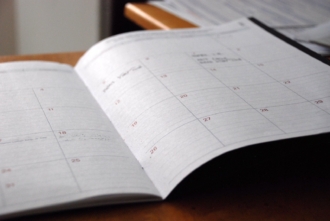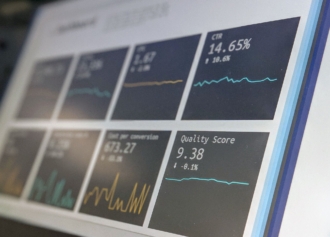Sports medicine doctors say that the month before their local marathon is their busiest month of the year. Aches and pains are cropping up, and the stakes are high, hundreds of miles and early mornings all building up to one day. Most of these injuries are a result of overtraining syndrome. Athletes are striving for their maximum fitness and go overboard, shirking rest days and doing too much, too quickly.
It may sound ridiculous to non-endurance athletes that people can run twenty miles and not want to sleep in the next day, but we do the same thing in the startup world, working eighty-hour weeks and neglecting time with our friends and families to reach our goals. And, when we neglect rest, we get the same results. Loss of productivity, plateaus in growth, general fatigue, changes in mood, all a result of insufficient recovery. But, we can build up our resilience, both physical and mental, to help us recover faster and achieve sustainable progress.
Resilience is required in the startup world. To be successful, you have to be both strong and flexible, focused and adaptable. It’s a study in contrasts, with both sides necessary to create and grow something great.
Similarly, resilience requires both hard work and recovery. Resilience is being able to adapt or bounce back in the face of adversity or stress. It’s the thing that gets you moving after a setback and lets you pivot when you get unexpected feedback. Given the highs and lows of starting a company, it is a critical skill to cultivate.
Luckily, resilience is something that can be improved with time and effort. Strategies vary person by person because we each react differently to stressful situations, but generally, tactics come down to perspective and recovery.
Get a little perspective
In order to make it through periods of acute stress, perspective helps orient you and the problem. When you’re starting a company, the stress of having your employees and investors depending on you can make every decision feel do-or-die and minor upsets feel catastrophic when really, the stakes are probably lower than that. What feels like a crisis may in retrospect just be a rough day.
Your stress response, which is there to keep you safe, can be bad for your health when chronically activated. Your body doesn’t know the difference between a life-or-death decision and a traffic jam that is going to make you late to a meeting. It reacts the same way, with a surge of adrenaline and cortisol, elevating your heart rate, increasing your brain’s access to energy, and suppressing systems that aren’t relevant. Chronic stress can increase your risk for strokes, heart attacks, and weight gain. This is why resilience is so critical. Perspective can be a big part of managing a stress response.

Perspective can be tough to get when you’re in the moment, so I like to use the 10/10/10 framework. Developed by Suzy Welch, the 10/10/10 framework asks you to think about scenarios in three different time frames: How will you feel about it in ten minutes, ten months, ten years? This forces you out of the present moment, to think about the scenario in the greater context of your life or your business.
Another part of perspective is positive thinking. You don’t have to become a full-blown optimist to be resilient, but orienting yourself towards your goals and what you want steers you away from dwelling on the negative or drowning in “what ifs.” Failure is a necessary part of learning and growth, but that doesn’t mean it feels great. By approaching stressors or events as opportunities to learn and grow, you are more likely to get through them and bounce back quickly.
Reject the hustle
In the early days of building my company, Jotform, I was so excited by my idea of creating drag-and-drop web forms, that I’d work from morning to night answering emails and support calls. During that time, I always had to be doing something to get results, even if it meant clocking in 16 hour days.
Startups glorify the hustle. If you aren’t sleeping on your factory floor, are you even really trying?
Of course, that mindset is toxic and unsustainable, as Elon Musk himself will attest.
Though it might seem like no big deal to slack on sleep or leave vacation days unused, the stakes are higher than you think. Aside from burnout (which most people think they’re exempt from until something bad happens), insufficient recovery increases the incidence of health and safety problems and costs companies an estimated $2 billion in lost productivity.
Constantly hustling without letting yourself recover is like playing life on “hard.” You might still make progress, but it will be more difficult and less enjoyable. When we power through with caffeine and bio-hacks, we’re resisting our bodies’ natural cues that tell us we need to take a break.

How to build in rest
Strategic periods of stress and rest allow you to get the most out of the time you spend working. As Brad Stulberg and Steve Magness have written: Stress + Rest = Growth. Taking control of your calendar will help you here. Overscheduling can easily make you feel like you’re on an endless treadmill of meetings and networking dinners. Avoiding overscheduling is critical to getting the rest you need.
Another way you can use your calendar to help is to schedule rest time. This could mean scheduling a break every ninety minutes or scheduling a few hours to decompress at the end of the day. Make rest a non-negotiable meeting with yourself. This way, even when you’re caught up in the day’s to-do list, you’ll have programmed in a recovery period. These breaks will improve focus, prevent decision fatigue, restore motivation, and consolidate memories.
It takes more than just shutting your laptop. It’s about quality time away from your work, getting mental if not physical space. Taking a walk and letting your mind wander will cultivate more creativity than combing through your inbox.
Though at first, it can feel counterintuitive to take a break when you’re inundated with projects, your time spent resting has a high return on investment. I believe that’s one of the reasons we’ve been able to reach 5 million users — because I‘ve made quality time off, for myself and our employees, a core tenet of my company.







































































Send Comment: